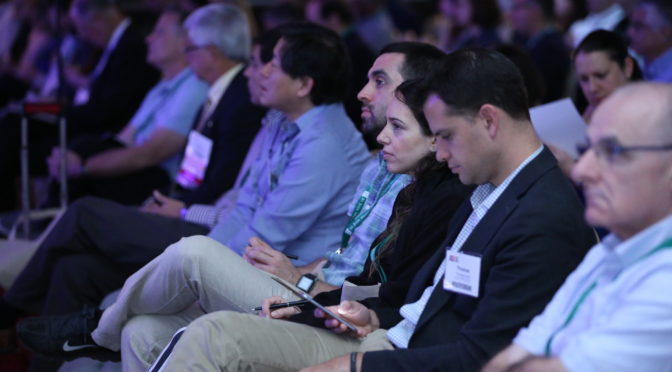 Live tweeting during a scientific conference offers many benefits. For attendees at the meeting, it allows sharing of learning points from multiple concurrent sessions. This also decreases the incidence of “FOMO (Fear of Missing Out)” since you can only be in one session at any given time but can learn vicariously through others. For your Twitter community outside the meeting venue, your live tweeting can help to disseminate the key messages from the conference to a broader audience and ultimately may facilitate changes in clinical practice.
Live tweeting during a scientific conference offers many benefits. For attendees at the meeting, it allows sharing of learning points from multiple concurrent sessions. This also decreases the incidence of “FOMO (Fear of Missing Out)” since you can only be in one session at any given time but can learn vicariously through others. For your Twitter community outside the meeting venue, your live tweeting can help to disseminate the key messages from the conference to a broader audience and ultimately may facilitate changes in clinical practice.
Check out these “Ten Simple Rules for Live Tweeting at Scientific Conferences” and Marie Ennis-O’Connor’s “15 Tips for Live Tweeting an Event” for a comprehensive overview of this subject.
Here are a couple of my own general rules to tweet by:
- Register your scientific conference hashtag on Symplur. This gives you access to free analytics and transcript services for a limited time.
- Be sure to use the correct conference hashtag and include it in all your tweets related to the conference. This is probably included in your conference materials or emails from the organizer. The hashtag allows others to easily find your tweets related to the conference and include your tweets in transcript summaries after the conference is over.
- Go for quality and not quantity. It is too difficult (and unnecessary) to give a phrase-by-phrase reproduction of a speaker’s entire lecture. Remember that you are primarily in attendance to learn, so make sure you spend most of your time listening and not tweeting. Consider summarizing two or three salient points into one tweet or tweeting photos of slides with a short commentary to provide context to your Twitter community.
- Give credit where credit is due. Do a little homework before tweeting. If a speaker has a Twitter handle, include it in your tweet. If the speaker references a relevant article, find the link and include it in your tweet. These elements make your tweet more informative to the reader and may increase the likelihood of its being retweeted or generating further conversation on Twitter.
- Don’t say anything in a tweet that you wouldn’t say to someone in public. Healthy debate is one of the best parts of scientific conferences, but keep the discussion on Twitter clean and professional and of course protect patient privacy and confidentiality.
